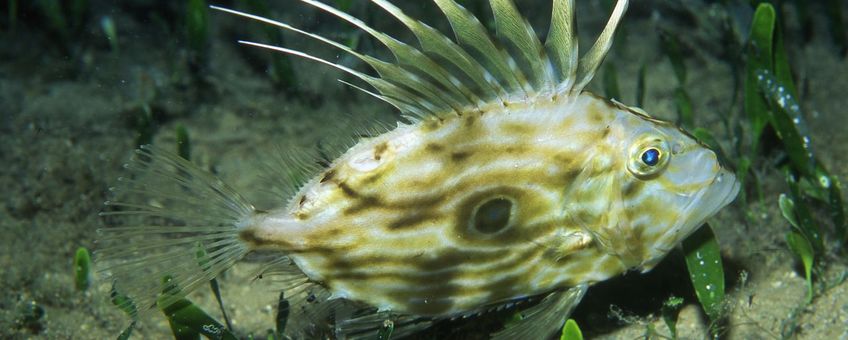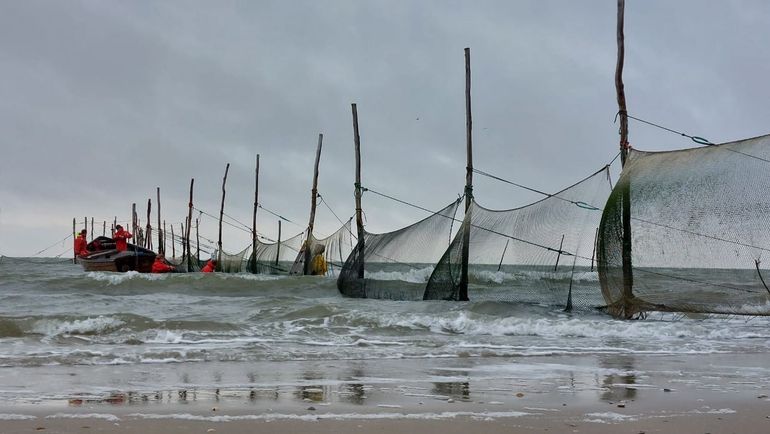
Significant impact of global warming on biodiversity in European seas
NIOZ Royal Netherlands Institute for Sea ResearchThe results of the research, published in Nature Communications, show an unprecedented redistribution of marine ecosystems that may have important economic and social consequences.
Long-term trends linked to steadily rising temperatures
Science continues to warn us about the impact of global warming and climate change on ecosystems. A new international study now warns of changes in the biodiversity of European seas and oceans as a result of steadily rising temperatures.
The research has analysed the extent to which long-term trends and changes in European marine communities (zooplankton, benthos, pelagic and demersal invertebrates and fish) have been linked to ocean warming. The research team used the Community Temperature Index (CTI), a standardised indicator that provides quantitative information on the state of a community in terms of its composition and the response of species to warming according to their affinity for warm or cold waters. The analyses covered time series of up to four decades from 65 monitoring programmes, including historical data for a total of 1,817 species in the Northeast Atlantic, Mediterranean and Baltic Seas.
Tropicalization and deborealization
The results of the scientific study show that most of the communities and habitats in European seas have responded to ocean warming through two ecological phenomena known as tropicalization and deborealization.
"The increase in the abundance of warm-water species, a process known as tropicalization, predominates in the Atlantic, while deborealization, the process of decreasing abundances of cold-water species, is especially remarkable in semi-enclosed basins such as the Mediterranean and the Baltic, which also experience the fastest rates of ocean warming", explains Guillem Chust, a researcher at the AZTI technology centre and lead author of the study.
According to experts, these patterns are due, on the one hand, to the greater ease of dispersal and colonisation of species in open environments, although there are also cases of invasion in semi-enclosed seas. "A noteworthy example is the increase of warm-water (thermophilic) species from the Indo-Pacific Ocean in the eastern Mediterranean, which arrived through the Suez Canal and compete with native species, altering food webs and marine ecosystems," adds Chust.
On the other hand, deborealization reflects the vulnerability of biodiversity in the Mediterranean and Baltic basins to rising ocean temperatures. Physical barriers limit connectivity and thus the migration of cold-water species to more suitable habitats to adapt to warming.
Declining marine biodiversity
Some of the fish species affected are declining in numbers. These include European sardine in the Mediterranean and cod in the Baltic Sea, both of which are ecologically and commercially important resources. "Rising temperatures can lead to population collapses or local functional extinctions, affecting fisheries and the local economies that depend on them. In particular, diadromous species that migrate between fresh water and the marine environment, such as salmon or eel, are vulnerable to climate change. These species are affected at different life stages and in different habitats," says the AZTI expert.
Other inhabitants of European marine communities, such as coralligenous organisms and zooplankton, are also affected by rising sea temperatures, impacting biodiversity and habitat structure in these ecosystems, as well as the availability of food for fish and other organisms.
Ocean warming and associated changes in marine biodiversity could also affect ecosystem services and marine resources. "Fisheries will need to adapt, including adjustments to fishing grounds, fishing seasons, as well as diversification into new species that may increase in abundance due to climate change," says Myron Peck of NIOZ, co-author of the research.
In addition, effective science-based management and regulation will be crucial. This includes adapting catch quota and fishing effort to changing population abundances, as well as implementing conservation measures to protect vulnerable species and ecosystems.

Long-running sampling programs NIOZ
In the study, the authors relied – among others – on NIOZ data from long-running sampling programs, focusing on fish and on benthic invertebrates. These long-term time series have been started by NIOZ colleagues in the 1960s and 1970s and continue up to date, to ensure our ability to look back in time at how our marine ecosystems are changing. Together with the analyses of other data sources, the publication shows how warm-water species are steadily on the rise in the North Sea.
The research was led by the Basque technology centre AZTI, with the collaboration of 39 experts from around the world and EU-funding through the FutureMARES project, coordinated by NIOZ.
More information
- Article Cross-basin and cross-taxa patterns of marine community tropicalization and deborealization in warming European seas, published in Nature Communications.
Text: NIOZ
Photos: peterwirtz2004@yahoo.com (lead photo: Peter's fish (Zeus faber)); Robert Twijnstra, NIOZ
